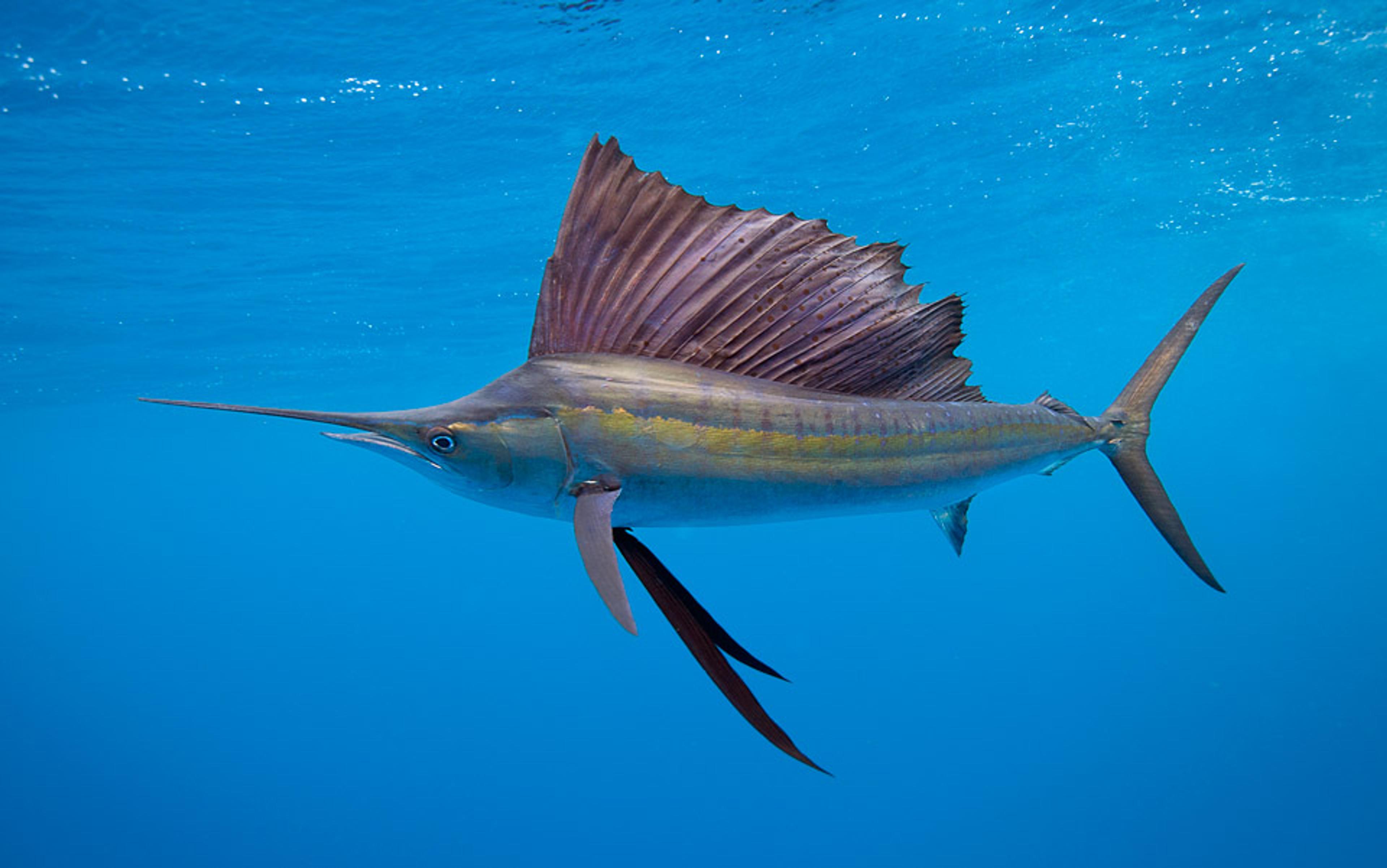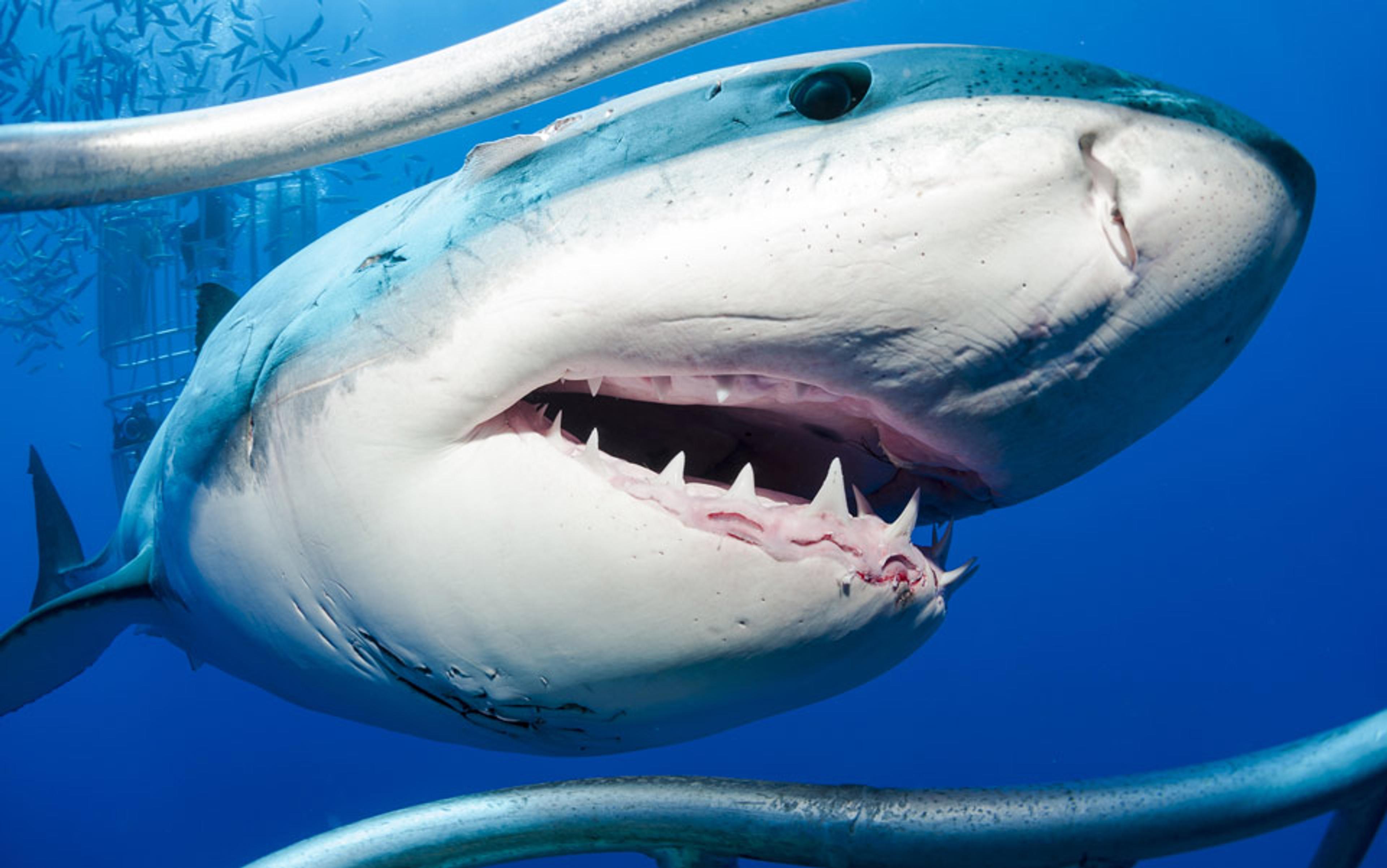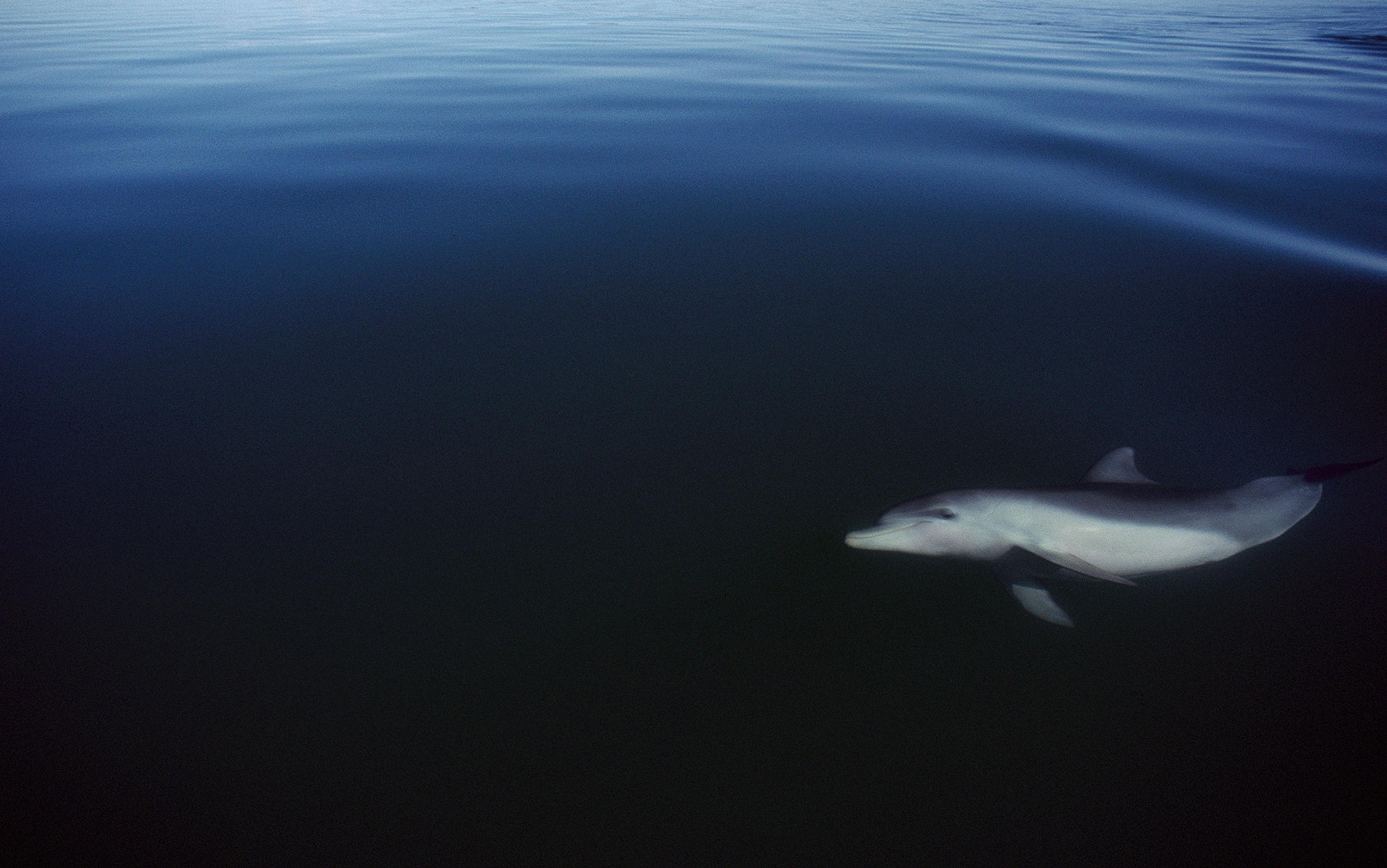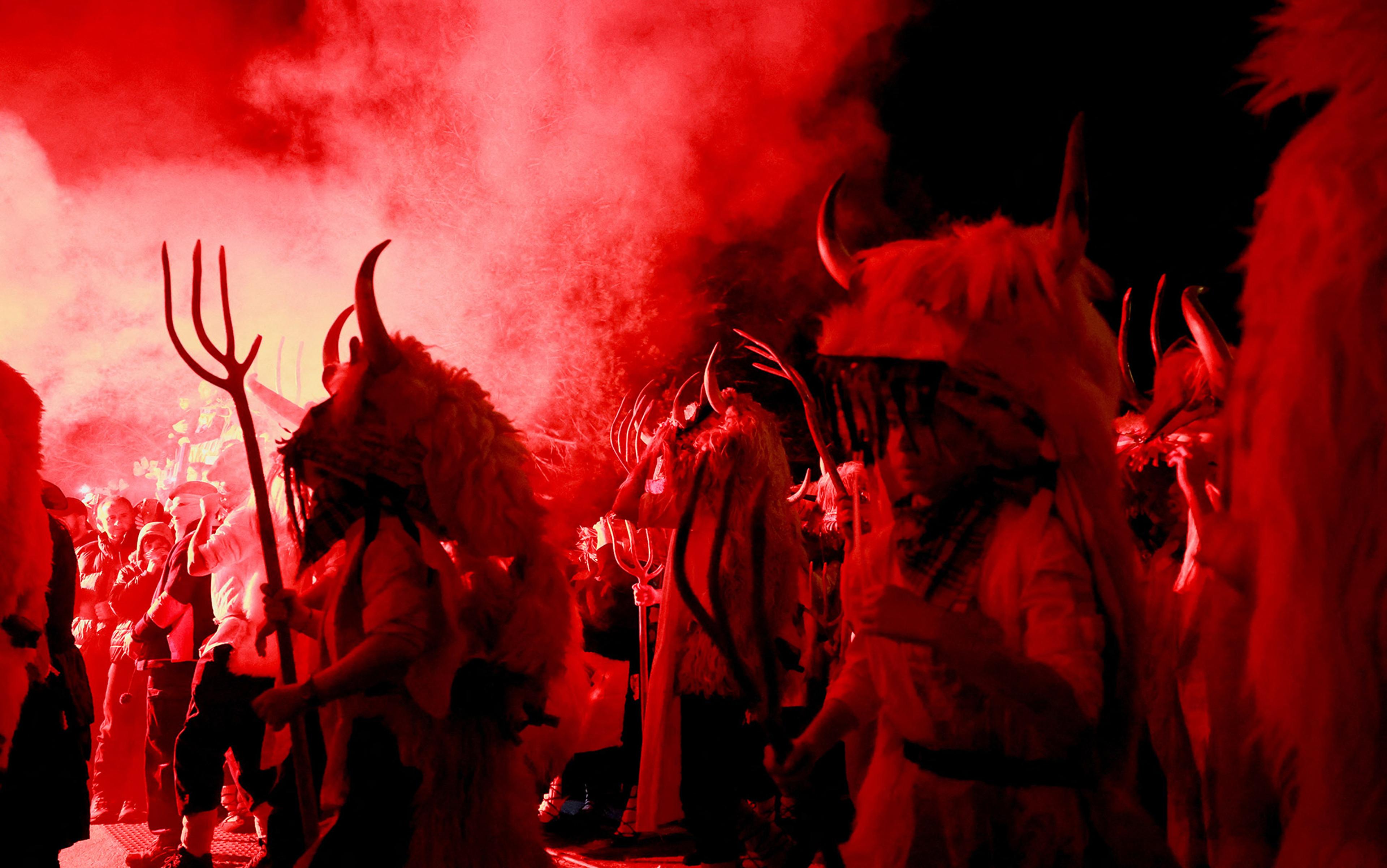Four days after my mother died I went scuba diving for the first time. Indirectly, it was her death that led me to take up diving in the first place. Going underwater seemed like a way to displace the emotional turbulence of my grief. It quickly became an obsession. In that alternative, liquid world I found freedom and tranquillity, mixed with excitement and the stimulation of discovery. That obsession became the focus of my life: I moved countries and jobs so that I could dive regularly in warm tropical water. I took my wife and three-month-old daughter to a small island where surface life posed many challenges: practical, financial, emotional and spiritual. Going underwater kept us sane, and all other problems were subordinated to the short but frequent doses of euphoria delivered by the ocean.
Almost 15 years after my mother’s death, I was the sole passenger on a seaplane over the Indian Ocean when my father died. We landed in a lagoon where a rubber dinghy collected me and ferried me to a larger boat where I was to spend a week cruising the outer atolls of the Maldives, diving four times a day. Mobile phones did not reach to that part of the islands at the time, but the cruiser was equipped with a satellite phone. As I carried my luggage to my cabin, I was summoned to the bridge. On an echoing, static line my wife broke the news. Before I could ask for any details, the connection was broken and I was unable to speak to anyone in the outside world for another five days.
The shock was immense. But I was surrounded by people — ship’s officers, diving staff and a handful of other passengers — none of whom I had met before. There was no point in trying to return home, and I had no means of reaching any members of my family. I decided that there was no one aboard the boat in whom I could confide. It seemed rude to impose my grief on strangers who would inevitably feel awkward at the situation. My loss was a painful, private wound that could not be exposed.
For a few moments the giant fish hung there, suspended like a mounted trophy
Two hours later I was in my diving kit, sitting on the side of the boat ready to plunge. The dive leader explained that we were heading to a reef promontory that was swept by a strong current. We were to follow him, swimming as quickly as possible to the deepest part of the reef, about 36 metres down. The speed of descent was meant to keep the current from forcing us apart. I was last into the water, and I followed a stream of silver bubbles into the misty grey-blue depths. Halfway down I could already see the other divers clutching on to the reef to steady themselves. Surrounding them were dozens of grey reef sharks, the object of the dive. Keen though I was to join them, I paused, sensing a presence behind me. Swivelling in the water and looking back towards the pale surface of the sea, I stared into the eyes of an ocean giant: a sailfish.
Sailfishes are about the size of a man. They have a long, sword-shaped bill, just like marlin. I abandoned my descent and finned towards the lurking presence. For a few moments the giant fish hung there, suspended like a mounted trophy. Then it raised and lowered its sail, blue skin traversed by flashing shadows in the bright-lit surface waters. It was the kind of encounter that is so immediate and thrilling that time and action seem compressed. For no more than five or six seconds we watched one another, then the sailfish shimmered, sideways, downwards, blending again into the darker water beyond my vision. None of the other divers saw my encounter, though the dive leader did, and we talked about it privately that night. I wanted his affirmation that I and the sailfish had really been just metres apart. I did not, could not, tell him about my father.
I have had hundreds of special underwater experiences, but I have never again seen a sailfish underwater. I know from other dive masters that such encounters are rare. I cannot shake the idea that, for many people on earth, this would have been a clear example of shape-shifting: my father’s only opportunity to say goodbye. My father was not a spiritual man. Indeed, he revelled in denying the existence of God — partly, I think, in order to infuriate my mother who, frankly, believed in everything. At university, I studied, at different times, classical civilisation, literature and anthropology. Did my experience merely spring from a recalled shamanistic tradition? Or was it an evocation of deeply buried lectures on Tolkien’s Sauron, or a childhood memory of a tale of Zeus and Io, Athena and Arachne? The intensity of my meeting with the sailfish was doubtless increased by my reeling mind.
And yet, how strange, in the hours and days following the loss of both of my parents, that I was able to be underwater, the place where I am happiest. I felt blessed by that. My mother had died without ever seeing me discover this pleasure. When I was a young adult, she worried constantly that I was unhappy. I hope she would have been pleased that I had discovered something that gripped me with such deep joy. Dad lived long enough to witness some of my underwater life. And yet his habit was to deny spirituality, to deny faith, to deny any sentimentality. When I met the sailfish in the hours following his death, it bothered me that he, of all people, might have been proved wrong in his view of the universe. But if reincarnation, perhaps momentary, as a sailfish was his route to wishing me farewell, I hope it came with a sense of acceptance: that all shall be well. I take my dead parents with me still, every time I dive.
These meetings underwater carry all the implied wariness, negotiation and unfulfilled, unknowable expectations that we have with human strangers
Immersion gives birth to these thoughts, tilling and ploughing my subconscious and bringing a sense of renewal. I have occasionally met other divers who say that being underwater allows them to reach new realms of spiritual, intellectual and emotional freedom. But they share that knowledge cautiously. By contrast, I have met lots of people who proclaim a special connection with certain marine creatures. I know divers who believe that they can connect with great white sharks, manta rays, even octopuses. I once spent a week with a group of middle-aged women in the Bahamas. They believed in the power of crystals, and were convinced that they could make a connection with wild dolphins. Dolphins seem to suffer that indignity more than most. There was even a woman who engineered an informal marriage ceremony with a captive one.
Such beliefs always make me wonder about Wittgenstein’s line that if lions could speak we would not understand them. In my experience, the connection that I make with marine life is something other, with just a thin thread of recognition. It certainly, on occasion, goes beyond the normal confines of a wildlife encounter. The very term ‘encounter’ smacks of pseudoscience, or the affected dispassion of the wildlife filmmaker. There are times when I feel strongly that these meetings underwater carry all the implied wariness, negotiation and unfulfilled, unknowable expectations that we have when we meet human strangers.
The news last month about a group of ‘killer whales’ trapped in Arctic Canada by pack ice reminded me of all this. Video images of the ‘panicking’ whales (as the media described them) made me uneasy. Plans were afoot to summon an icebreaker to save the orcas from death by exhaustion as they struggled to surface in the increasingly restricted water, surrounded by thickening floes. In the end, they found their own way out, and scientists confirmed that the orcas had carefully timed their ‘frantic’ surface breaths so as to allow the younger, smaller individuals more frequent access to the air than the larger pack leaders.
Orcas have a habit of raising themselves vertically in the water so that their head pokes above the surface. They do this to gain a better view of the world above — perhaps to spy on seals at the water’s edge, or to inspect a boat. The trapped Canadian whales did this repeatedly, especially the larger, older individuals in the group. It seemed obvious to me they were probably assessing the threat from the assembled human observers, and looking for signals — in the reflected light in the sky or in the patterns on the surface of the ice — that might betray the presence of open water. As to their levels of panic, distress or anxiety, we can only guess.
In the Norwegian Arctic, I once came face to face with several orcas, males, females and juveniles. The most affecting meeting was with a large mature male, whose dorsal fin projected a good two metres above the water. Alone, floating above the abyss of that bitterly cold dark fjord, we looked at each other. I knew that in that environment I was the inferior, the alien species. My senses were ill-suited to understanding the dark depths. I cannot say what passed between us, but as he circled me at a steady distance he inspected me closely, unhurried and calm with an eye that signalled intelligence. I have never forgotten the intensity of that gaze, and my own joy and awe.
That meeting, and eye-to-eye exchanges with cuttlefish, octopuses, dolphins, whales and certain sharks, have made me humble in the presence of other species. There are social movements pressing us towards an ethical view of how we ‘treat’ animals, and there are big epistemological questions to be asked about how much we understand of their feelings and perception of ‘our world’. For me, being underwater is the purest form of pleasure. Encountering those other, largely secretive creatures has an added value that is partially connected to the mystery of their existence. We meet briefly, without troubling one another. And I do not care to know too much about their lives. Our very separateness enriches us.






